Resource Center
The Transit Workforce Center is pleased to host a curated collection of publications and other materials to assist stakeholders engaged in transit workforce development. The Resource Center includes case studies, training materials, research reports, and other materials of interest, including publications produced by federal government agencies, transit organizations, and independent research entities. Resources may be filtered by topic, resource type, and transit mode. This TWC blog post explains how to use the Resource Center.
We are continuing to update the Resource Center regularly. Please contact us via the Request Help menu option if you would like assistance using the Resource Center or are looking for resources on a particular topic. We also welcome suggestions of topics or specific resources to add.
Content in external resources linked from the Resource Center is solely the responsibility of the resource authors and does not necessarily reflect the perspectives of or endorsement by the Transit Workforce Center.
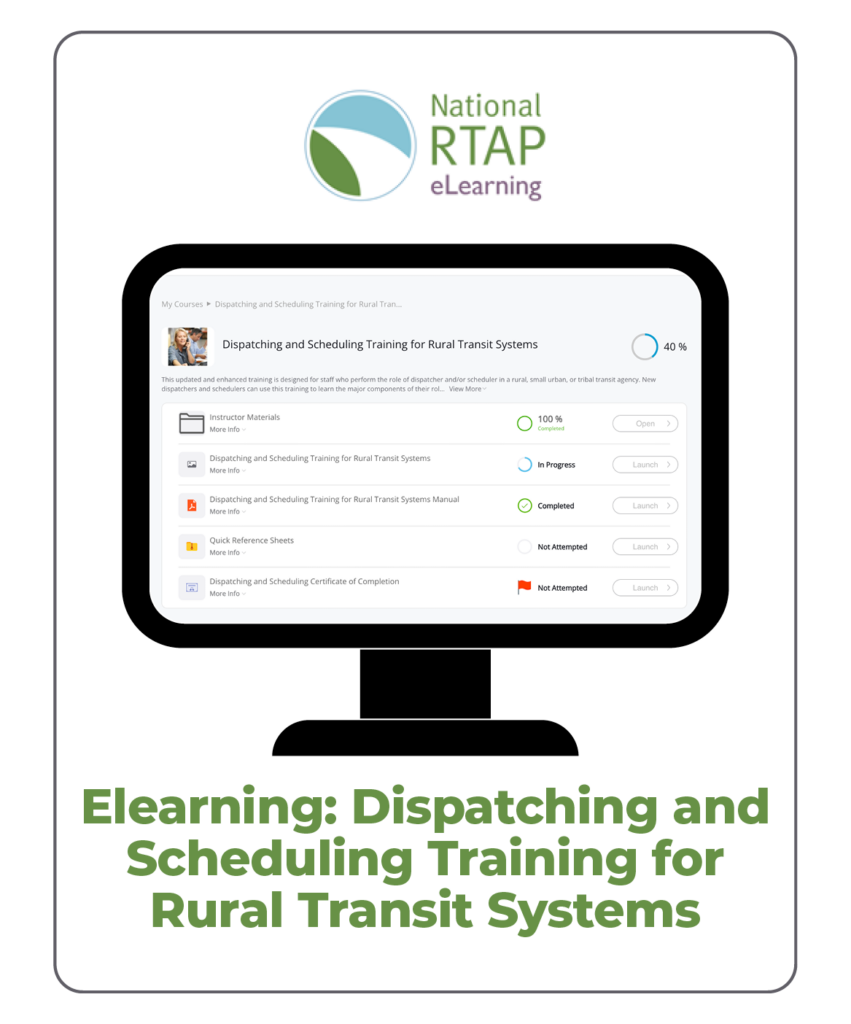
Elearning: Dispatching and Scheduling Training for Rural Transit Systems
This elearning training is designed for staff who perform the role of dispatcher and/or scheduler in a rural, small urban, or tribal transit agency. New dispatchers and schedulers can use this training to learn the major components of their roles. Seasoned dispatchers and schedulers can also use the training for refreshing their skills.
National RTAP
December 2024
TOPICS: Training
This online training is designed for staff who perform the role of dispatcher and/or scheduler in a rural, small urban, or tribal transit agency. New dispatchers and schedulers can use this training to learn the major components of their roles. Seasoned dispatchers and schedulers can also use the training for refreshing their skills.
The entire eLearning course takes approximately 4 hours and covers the topics listed below:
- Working in a Transit Environment
- Transit Service Types
- Americans with Disabilities Act
- Essential Communication Skills
- Customer Service
- Role of the Dispatcher
- Role of the Scheduler
- Use of Technology
- Working as a Transit Team
- Responding to Transit Incidents
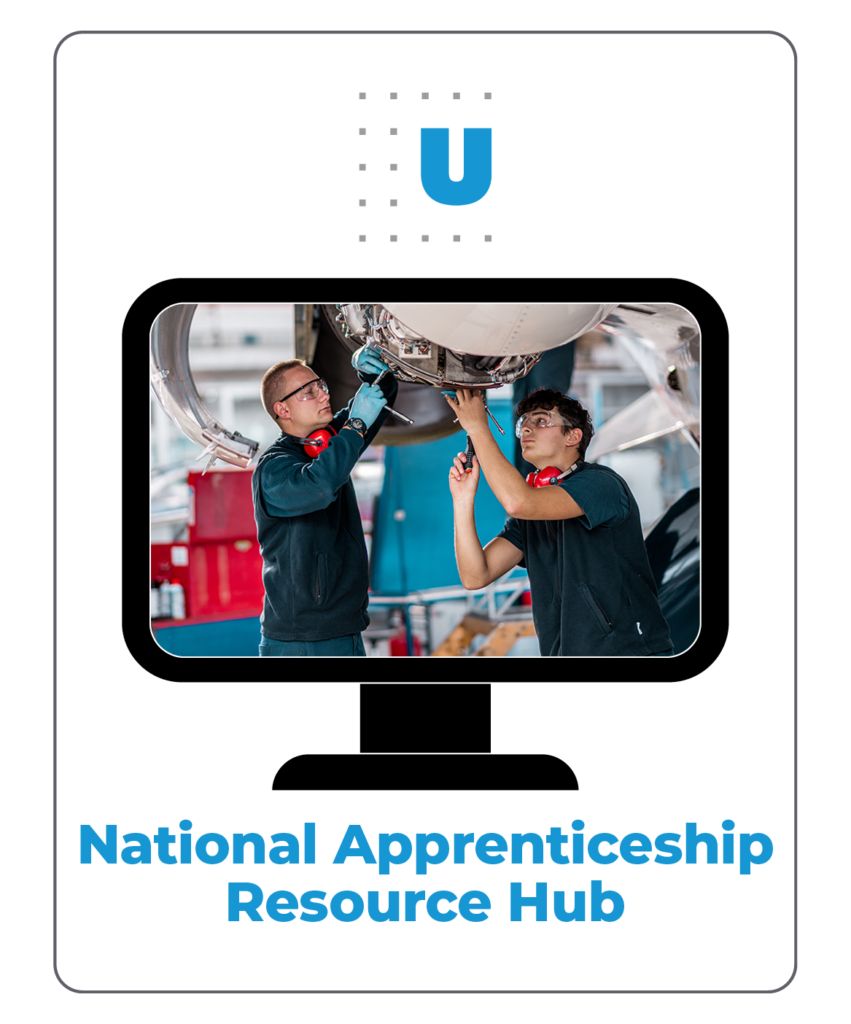
National Apprenticeship Resource Hub
Apprenticeship Programs can help employers develop their future workforce and meet their business needs. The National Apprenticeship Resource Hub includes National Occupational Frameworks which can help develop a new apprenticeship program or refine an existing program. Each framework outlines the basic information sponsors need to register an apprenticeship program in their occupation.
The Urban Institute
December 2024
LEARN MORE
The National Apprenticeship Resource Hub includes Occupational Frameworks which can help develop a new apprenticeship program or refine an existing program. Each framework outlines the basic information sponsors need to register an apprenticeship program in their occupation including an occupational overview that describes the occupation, alternative job titles, and any prerequisites; a work process schedule that outlines what organizations can expect apprentices to learn on the job and the required hours; and a related technical instruction outline that presents considerations for courses and training apprentices can pursue during the apprenticeship. The National Occupational Frameworks also include detailed instructions on how to use them when creating your registration application.
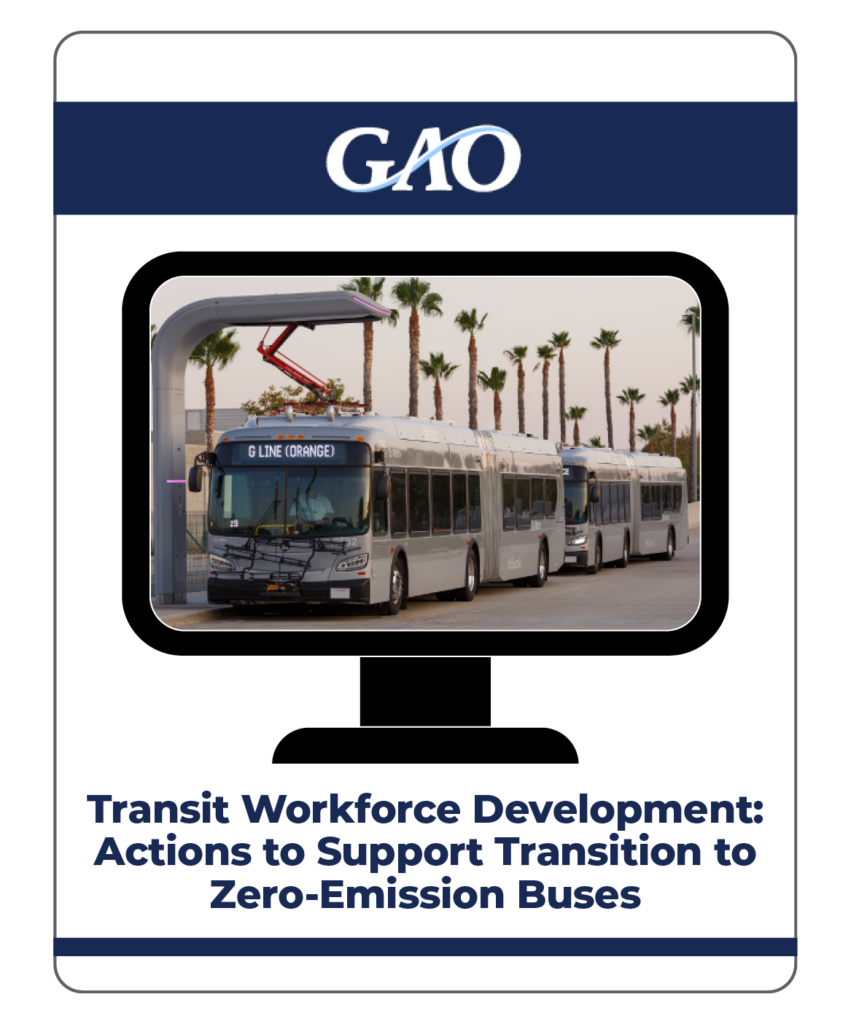
GAO Low-No Transition Report
After data analysis and expert interviews, GAO published this report which describes: (1) the status of transit agencies’ transition to low-no bus fleets; (2) skill- and workforce-development needs of transit agencies; and (3) recommended FTA actions to assist transit agencies in preparing their workforces for low-no buses.
U.S. Government Accountability Office
December 2024
TOPICS: Low-No, Policy and Planning, Program Evaluation and ROI, Trainer and Mentor Development, Training, Workforce Shortage
After data analysis and expert interviews, GAO published this report which describes: (1) the status of transit agencies’ transition to low-no bus fleets and any challenges they may face meeting transition goals; (2) skill- and workforce-development needs of transit agencies and actions selected agencies are taking to address any workforce gaps; and (3) recommended FTA actions to assist transit agencies in preparing their workforces new fuel technologies.
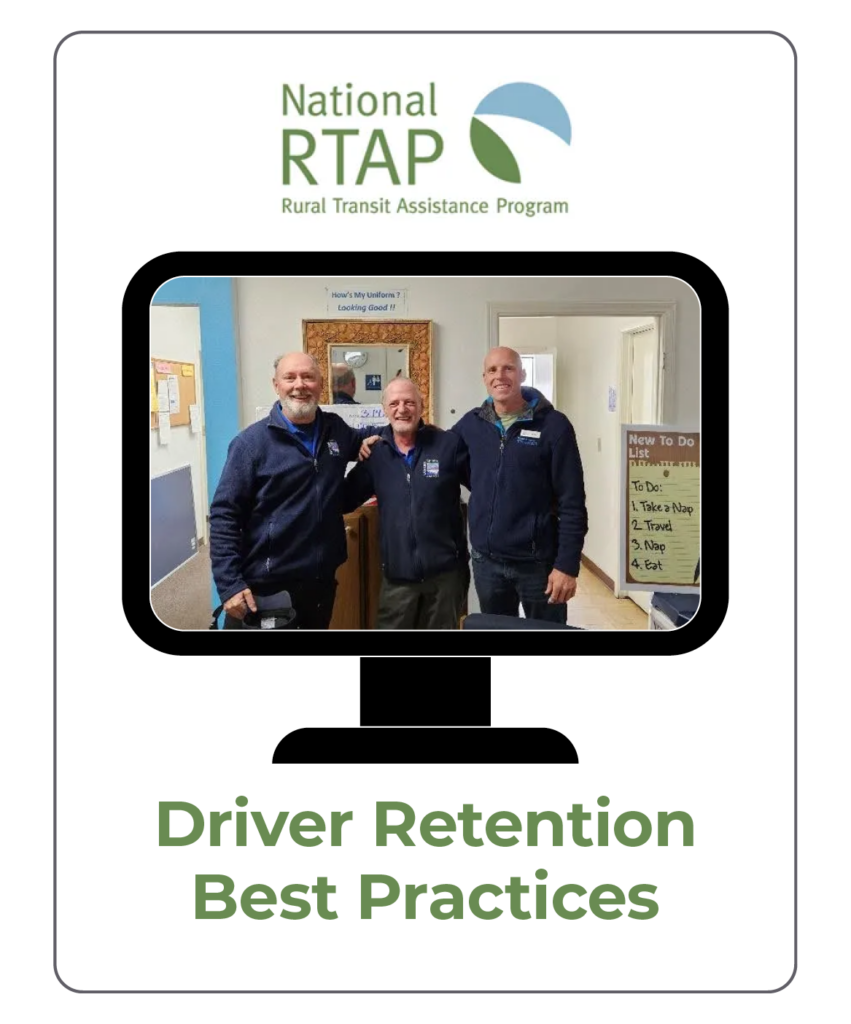
Driver Retention Best Practices
It is increasingly difficult to recruit and retain rural and tribal transit drivers. This National RTAP Best Practices Spotlight Article provides practical and easy-to-implement strategies from transit leaders that agencies can use to create a workplace that drivers will want to remain in and thrive in.
National RTAP
December 2024
LEARN MORE
It is increasingly difficult to recruit and retain rural and tribal transit drivers. This National RTAP Best Practices Spotlight Article provides practical and easy-to-implement strategies from transit leaders that agencies can use to create a workplace that drivers will want to remain in and thrive in. This article includes advice from Eastern Sierra Transit Authority (ESTA), Redding Area Bus Authority (RABA), Heart of Iowa Regional Transit Agency (HIRTA), and Big Woods Transit (BWT).
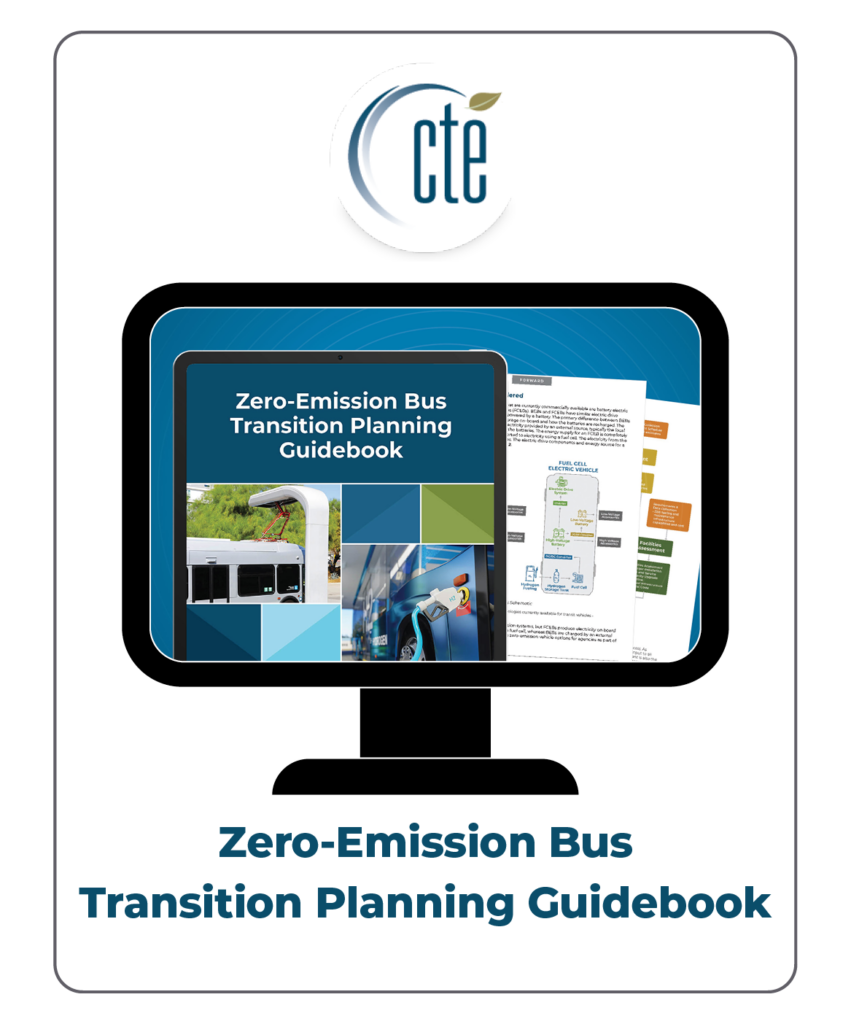
Low-No Bus Transition Planning Guidebook
This Guidebook prepared by The Center for Transportation and the Environment gives public transit fleet operators the knowledge necessary to mitigate challenges and plan for a full fleet transition to low-no technologies.
The Center for Transportation and the Environment
November 2024
TOPICS: Low-No, Policy and Planning, Procurement, Training
Transitioning to a ZEB fleet requires thorough planning and consideration of the elements that are unique to ZEBs, such as range limitations, higher vehicle costs, charging and/or hydrogen infrastructure, and operator and maintenance workforce development. Failing to plan around these issues may result in added costs for bus and infrastructure purchases, project delays, service concerns, and operational challenges as low-no become a larger and larger portion of the fleet.
A properly developed Low-No Transition Plan can help overcome these challenges. This Guidebook is intended to give public transit fleet operators the knowledge necessary to plan for a full fleet transition to low-no technologies.
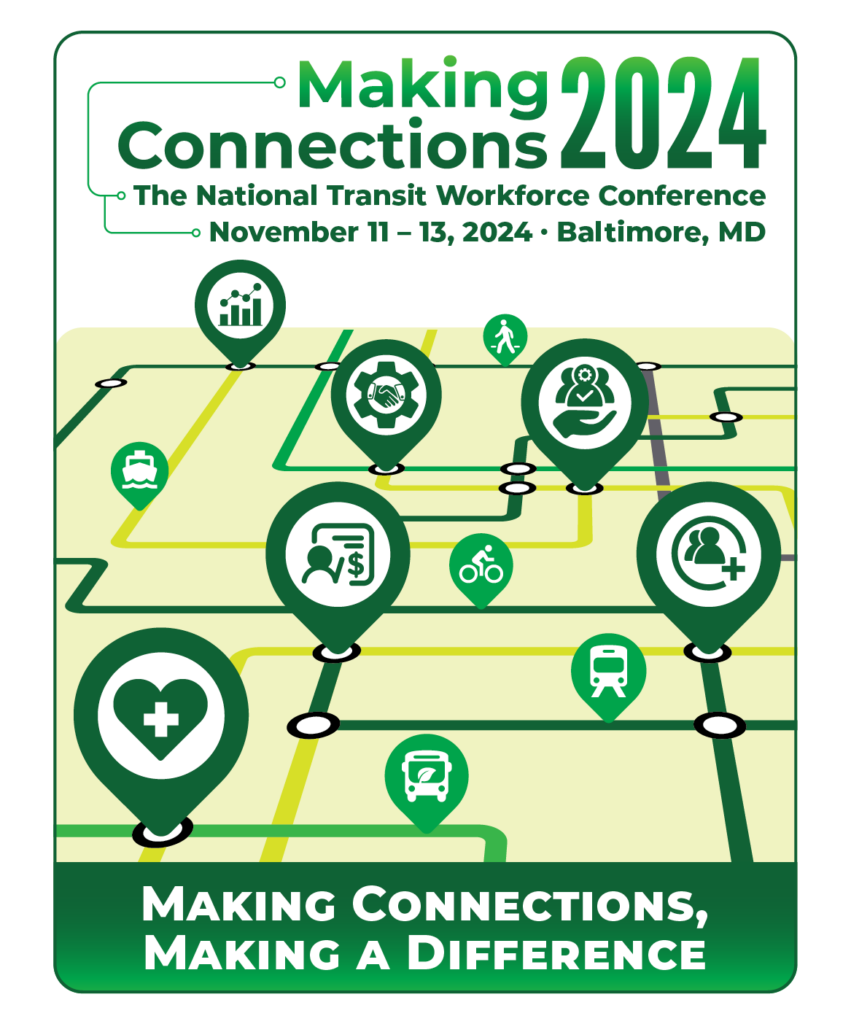
Making Connections 2024 – Workforce Data in Context – National Trends, Future Projections, and Implications for Transit Locations
This session about national and agency-level workforce datasets was presented as part of TWC’s Making Connections 2024 transit workforce conference in November, 2024.
Transit Workforce Center
November 2024
LEARN MORE
Session Description: Employment in public transportation is affected by broad economic and demographic dynamics, but honing in on transit workforce trends can be challenging. The Transit Workforce Center created the Transit Workforce Data Dashboard to distill relevant data points from national datasets. In this session, TWC highlighted specific employment patterns and challenges in transit-related occupations and panelists covered research and trends in national and agency-level datasets.
Moderator:
- Douglas Nevins: Senior Researcher – International Transportation Learning Center / Transit Workforce Center
Speakers:
- Dr. Asha Weinstein Agrawal: Director of Education – Mineta Transportation Institute
- Kenneth Blacks: Transportation Program Analyst – Federal Transit Administration
- Michaela Boneva: Research Associate – International Transportation Learning Center / Transit Workforce Center
- Dr. Shayna Gleason: Senior Researcher – International Transportation Learning Center / Transit Workforce Center

Making Connections 2024 – Creative Uses of Workforce Development Funding – Scalable Options for Agencies of All Sizes
This session about workforce development funding was presented as part of TWC’s Making Connections 2024 transit workforce conference in November, 2024.
Transit Workforce Center
November 2024
LEARN MORE
Session Description: Providing structured workforce development programs for frontline public transit workers is of critical importance for transit agencies as they work to retain employees, integrate new technologies, and fill vacant positions. Attendees of this session learned how to use funding available to transit agencies for workforce development, such as the additional funding awarded under the Low-No/Bus and Bus Facilities grant program, and heard from agencies about how they have utilized grant funds and other FTA funding to develop and implement training programs.
Moderator:
- Karitsa Holdzkom: Senior Policy Analyst – International Transportation Learning Center / Transit Workforce Center
Speakers:
- Zachary Bodle: Assistant Business Agent Maintenance – Amalgamated Transit Union Local 265 (CA)
- John Bodnar: Director, Office of Transit Programs – Federal Transit Administration
- Jason Macumber: Senior Advisor of Workforce Development and Technology – International Transportation Learning Center / Transit Workforce Center
- Steve Jovel: Operations Manager, Workforce Development – Santa Clara Valley Transportation Authority (VTA)
- Jeff Rosenberg: Director of Government Affairs – Amalgamated Transit Union
- Mauro Varela: Treasurer – Amalgamated Transit Union Local 1277 (CA)
- Kristin Warsinski: CEO – Riverside Transit Agency (CA)

Making Connections 2024 – Conflict Resolution and De-escalation – Models for Operator Training
This session about conflict resolution and de-escalation was presented as part of TWC’s Making Connections 2024 transit workforce conference in November, 2024.
Transit Workforce Center
November 2024
LEARN MORE
Session Description: De-escalation, conflict avoidance, and conflict resolution are integral to an operator’s job. Operators primarily work alone, and the driver’s seat is an extremely vulnerable position. In this session, we honestly and productively explored the ways in which operators can deal with all manner of attacks, physical and verbal, and analyzed approaches to address the range of challenges that come with this profession. Presenters discussed different training models used to support operators with their challenges and engaged with the audience in considering options that can make a positive impact.
Moderator:
- Maurice Beard: Senior Workforce Development Advisor – International Transportation Learning Center / Transit Workforce Center
Speakers:
- Jamaine “G” Gibson: Director of Apprenticeships and Workforce Development – Amalgamated Transit Union
- Tricia Prince: Safety and Training Manager – Chattanooga Area Regional Transportation Authority
- Lakecha Strickland: President – Amalgamated Transit Union Local 1212 (TN)
- Melissa Thomas: Transportation Training Manager – Central Ohio Transit Authority (COTA)
- Lisa Rae Vickery: Deputy Director of Operations Development – Santa Clara Valley Transportation Authority








